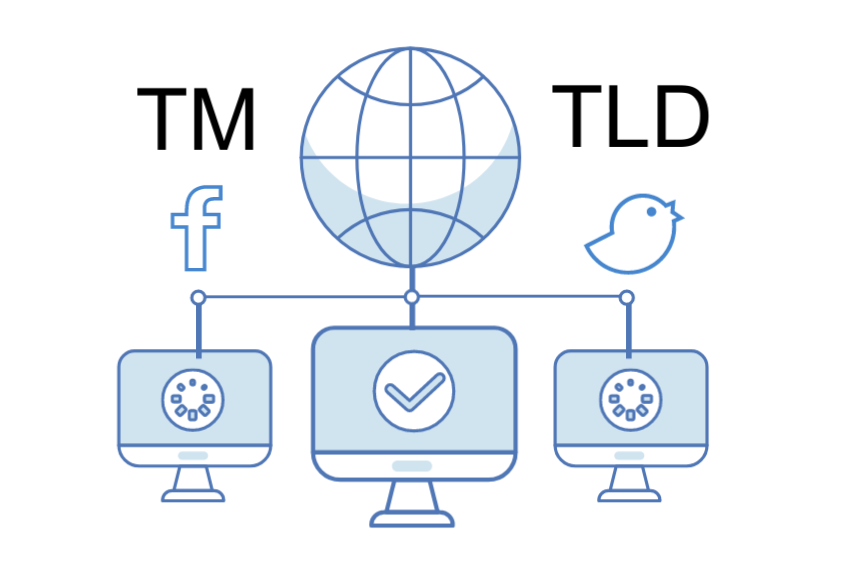
10 April 2023
Navigating the Complexities of IP, Domain Names, and Social Media in New Markets
Expanding to new markets is a complex process that presents several challenges for startups. They need to understand the market, adapt to cultural differences, comply with regulations, and comprehend market and consumer behaviours.
Different markets have unique cultural differences, such as language, customs, and business practices. There are also often varying legal, regulatory, and digital environments, which means the way consumers behave in one market may be entirely different in another. Startups need to adapt to these differences to succeed, and each market requires its own strategy, including how it digitally deploys its brands.
Choosing a brand in a new market can be a challenging task for startups. While it makes sense to use your core brand for global consistency, there can be hurdles that make that difficult, and it is not always possible.
Check for possible trademark conflicts
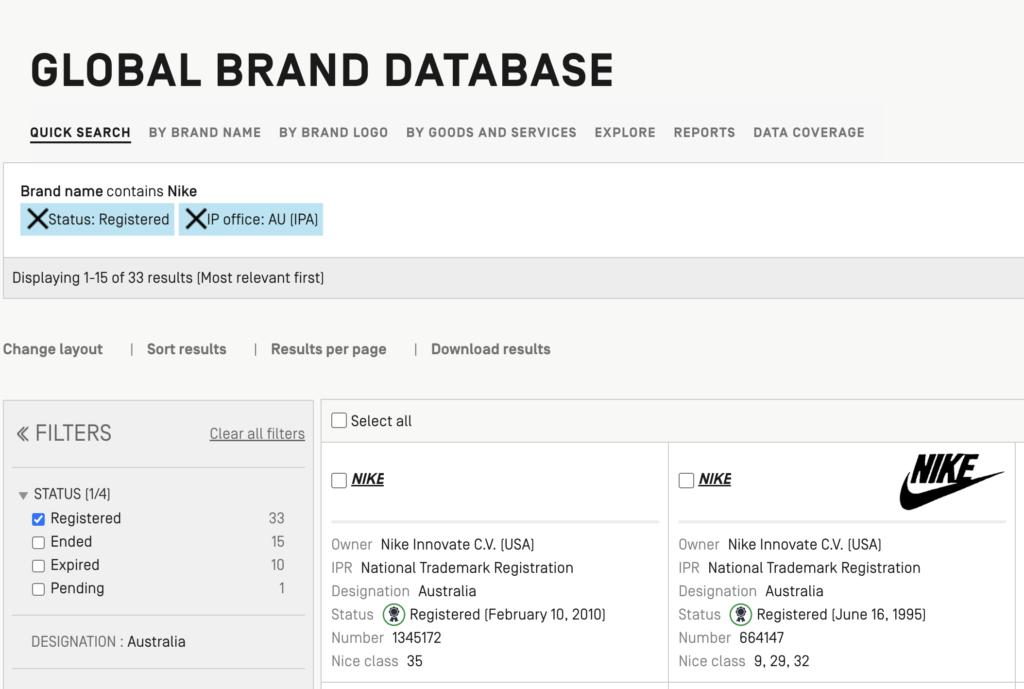
The Global Brand Database will quickly identify any possible IP issues
Startups need to conduct a thorough search to ensure that the brand name is not already in use or infringes on existing trademarks or copyrights. Failure to do so can result in legal issues and costly litigation. Undertaking trademark searches is a crucial step in protecting your brand.
If no similar trademarks are already registered or in the process of registration, your proposed trademark is strong, and it will likely be approved for registration. However, if there is an existing conflicting trademark, your proposed trademark may be rejected (but you can take steps to challenge it), and you may need to change your branding approach.
You can use WIPO’s Global Brand Database to sift through trademarks from multiple national and international databases. With more than 50 million records from over 70 databases (including those registered through the Madrid System), it’s a comprehensive search engine and should always be checked as part of your market due diligence.
Choose the domain name space wisely
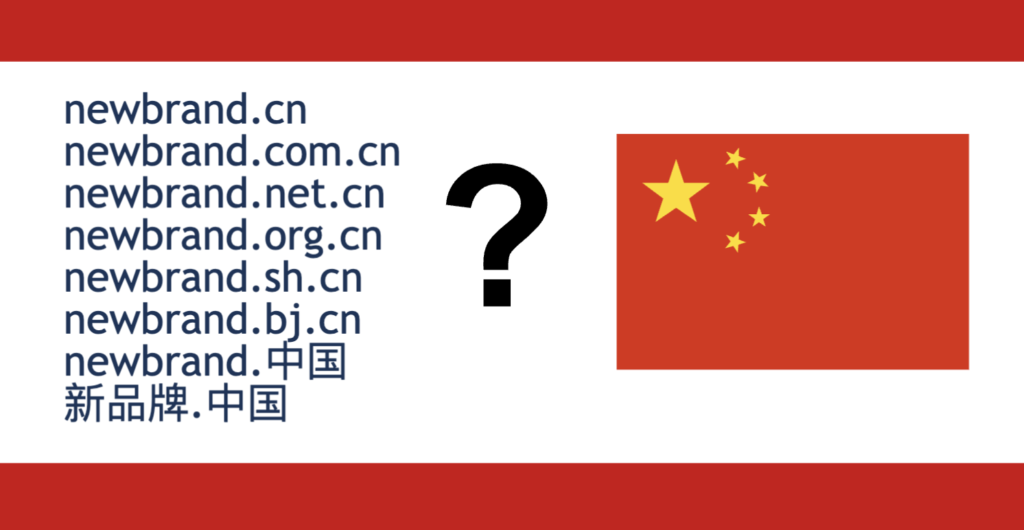
Do you know the most rapidly rising Chinese domain name space?
Every country has a different relationship with domain names. Some countries, such as Australia, predominantly use their own ccTLD (.com.au) for commercial websites, whereas others rely on the com domain name space. To add to the complexity, some countries have multiple domain name spaces. So, how do you decide which TLD to go for?
Choosing the right domain name space could be the difference between consumers trusting your brand online or not. Often, there are many spaces to choose from, so Brandsec can assist with a ccTLD audit and provide advice on the best domain name space to use.
What if the domain name is not available?
Achieving global brand consistency within a domain name portfolio is the ideal state; however, it can be challenging to attain due to the registration of domain names by cybersquatters or third parties that closely match your branding.
If the country code top-level domain (ccTLD) for the market you are trying to enter is not available, there are a few options you can consider:
- Negotiate with the current owner: If the domain name you want is already registered, you can try to negotiate with the current owner to buy it from them. Brandsec can manage the end to end negotiation process to get the desired domain name at the best possible price.
- Use a different domain extension: Some markets have alternative ccTLDs that are just as trusted as the primary domain name space. However, there are also secondary domain name spaces that might not be ideal for localizing your website to the target market, so we recommend consulting with a domain name management expert with knowledge of international domain name spaces.
- Consider a subdomain: You can consider using a subdomain, such as country.domainname.com to target the specific market. This would generally be a part of an overall subdomain/country strategy and recommended where many of the markets ccTLDs are taken.
- Modify the domain name: You can try modifying the domain name slightly to make it available. For example, if your preferred domain name is not available in the .co.uk extension, you can try adding a hyphen or a different word to make it available. This won’t achieve branding consistency but is often the easiest choice.
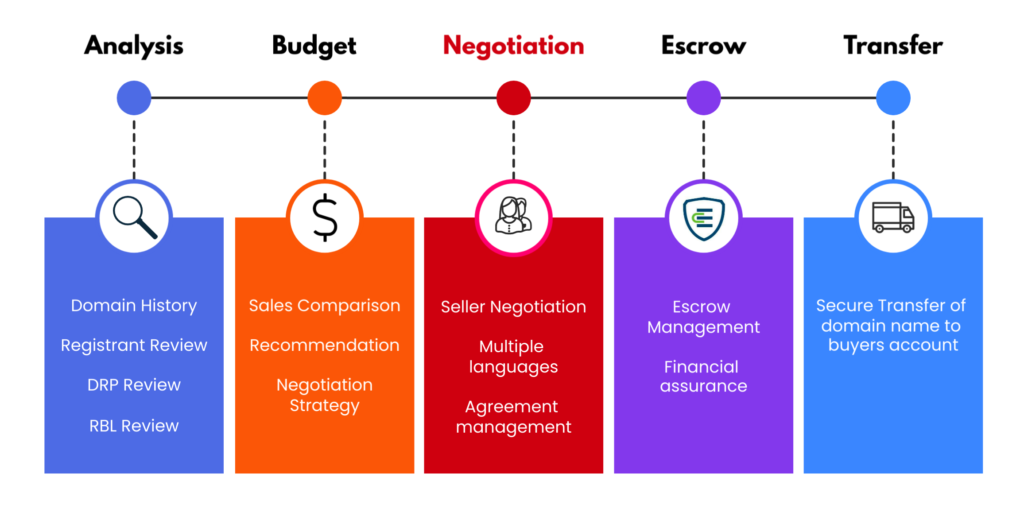 Brandsec assists our clients in acquiring domain names that are taken by third parties or developing domain name strategies for specific countries. Our experience shows that negotiating in the local language is significantly beneficial. It builds trust, avoids misunderstandings, and helps in gaining an accurate understanding of the seller’s perspective. Negotiating in the seller’s language can lead to a more successful deal as it tailors your approach to their motivations. Brandsec has a network of brokers proficient in over 14 different languages. Contact us to discover how we can help you expand into new markets.
Brandsec assists our clients in acquiring domain names that are taken by third parties or developing domain name strategies for specific countries. Our experience shows that negotiating in the local language is significantly beneficial. It builds trust, avoids misunderstandings, and helps in gaining an accurate understanding of the seller’s perspective. Negotiating in the seller’s language can lead to a more successful deal as it tailors your approach to their motivations. Brandsec has a network of brokers proficient in over 14 different languages. Contact us to discover how we can help you expand into new markets.
A Local Social Media Engagement Plan
For businesses seeking to expand into international markets, it is crucial to understand how local consumers engage in different social media platforms. Developing a specific social media market strategy for each country can help businesses effectively reach and engage with their target audience, improve brand recognition, and ultimately drive sales.
Different social media platforms are popular in different countries, and understanding these preferences can help businesses choose the right platforms for each market. For instance, Facebook is the most popular social media platform in Australia, but it is not used in many Asian countries. In China, where the government blocks many popular Western social media platforms such as Facebook, Twitter, and Instagram, homegrown social media platforms like WeChat, Weibo, and Douyin (TikTok outside China) are promoted. In Japan, LINE, a messaging app with social networking features, is the most popular social media platform.
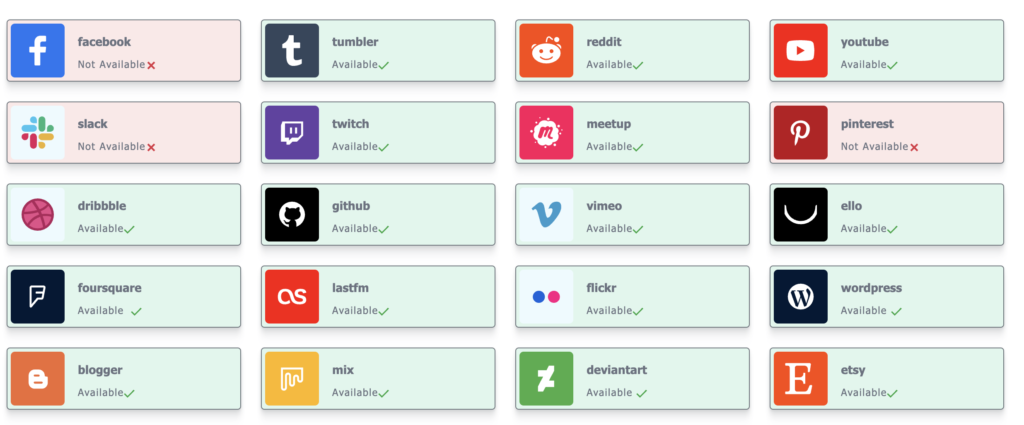
Businesses can use online tools to conduct bulk handle lookups and quickly register social media handles without having to go through each platform’s registration process. At brandsec, we can help register social media handles in over 200 different global social platforms.
Summary – Spend a little time planning
The process of expanding to new markets presents several challenges for startups, including understanding the market, cultural differences, compliance with regulations, and consumer behaviors. Choosing a brand name and domain name space can also be challenging and requires careful consideration. Startups must conduct a thorough search for possible trademark conflicts and choose the right domain name space that aligns with local preferences. If the domain name is not available, you can negotiate with the current owner, use a different extension or consider a subdomain. Understanding local social media preferences is also important, as different platforms are popular in different countries. Developing a specific social media market strategy for each country can help businesses effectively reach and engage with their target audience. There are tools available online to help businesses register social media handles, and Brandsec can help register handles in over 200 different platforms.
About brandsec
brandsec is an Australian domain name management provider that offers online brand management solutions to corporate and government organisations.
Our services include domain name management, domain name security, domain name policy development, dispute management, monitoring, and enforcement services. Additionally, brandsec offers a comprehensive online brand protection service that covers various platforms such as websites, social media, email, and online marketplaces. The service addresses issues related to counterfeiting, fakes, copyright infringement, intellectual property (IP) matters, piracy, and other intellectual protection-related issues.
